Why antibodies may not be the key to beating coronavirus
Overall scientific credibility: 'very high', according to scientists who analyzed this article.
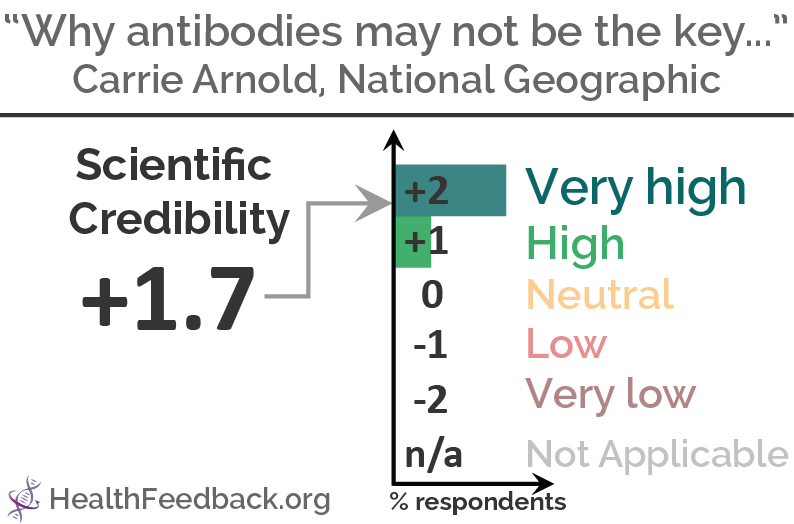
Find more details in Health Feedback's analysis
Why antibodies may not be the key to beating coronavirus
Overall scientific credibility: 'very high', according to scientists who analyzed this article.

Find more details in Health Feedback's analysis
See how global warming has changed the world since your childhood
Overall scientific credibility: 'very high' according to the scientists who analyzed this article.
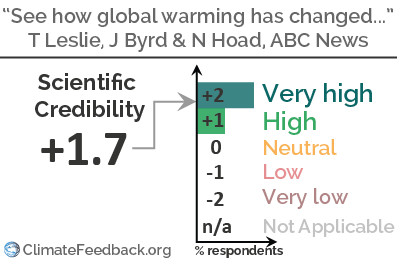
Find more details in Climate Feedback's analysis
More Polio Cases Now Caused by Vaccine Than by Wild Virus
Overall scientific credibility: 'high', according to scientists who analyzed this article.
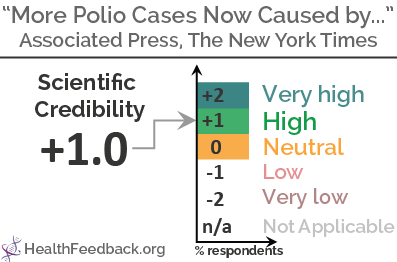
Find more details in Health Feedback's analysis
Huge reduction in meat-eating ‘essential’ to avoid climate breakdown
Overall scientific credibility: 'high', according to scientists who analyzed this article.
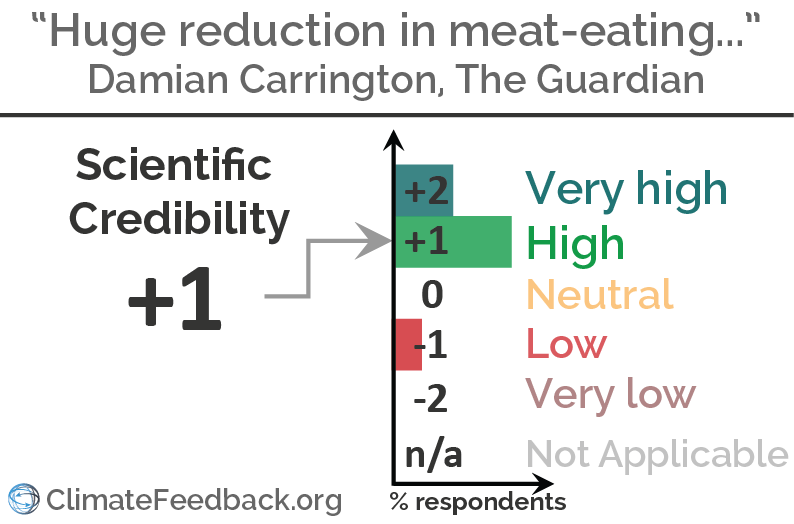
Find more details in Climate Feedback's analysis
North Pole surges above freezing in the dead of winter, stunning scientists
Overall scientific credibility: 'very high', according to scientists who analyzed this article.
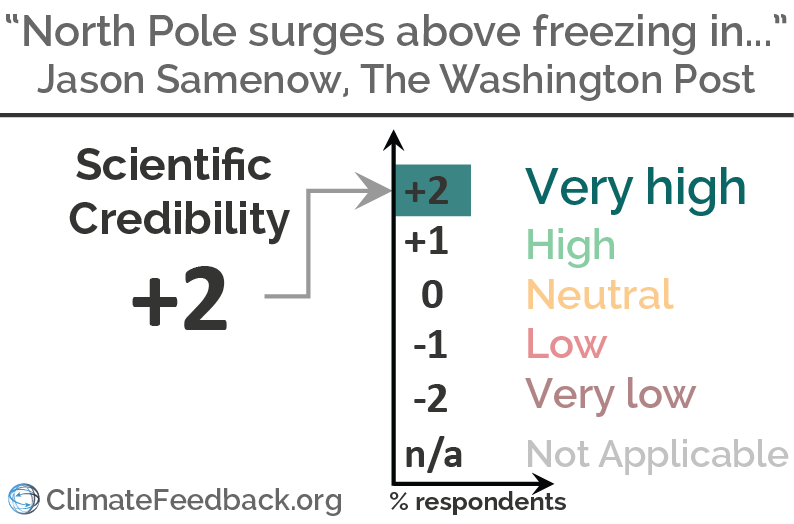
Find more details in Climate Feedback's analysis
Here's How to Tell if You Have a Cold or the Flu
Overall scientific credibility: 'high' to 'very high', according to scientists who analyzed this article.
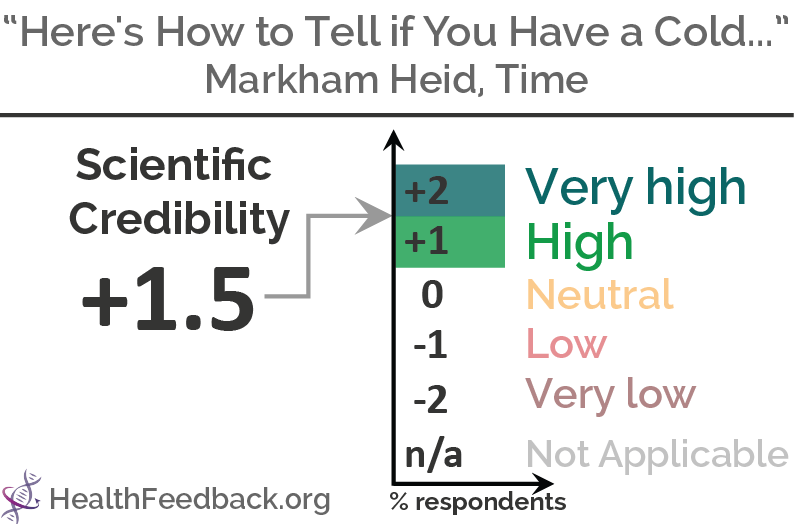
Find more details in Health Feedback's analysis
Startling new research finds large buildup of heat in the oceans, suggesting a faster rate of global warming
Overall scientific credibility: 'high', according to scientists who analyzed this article.
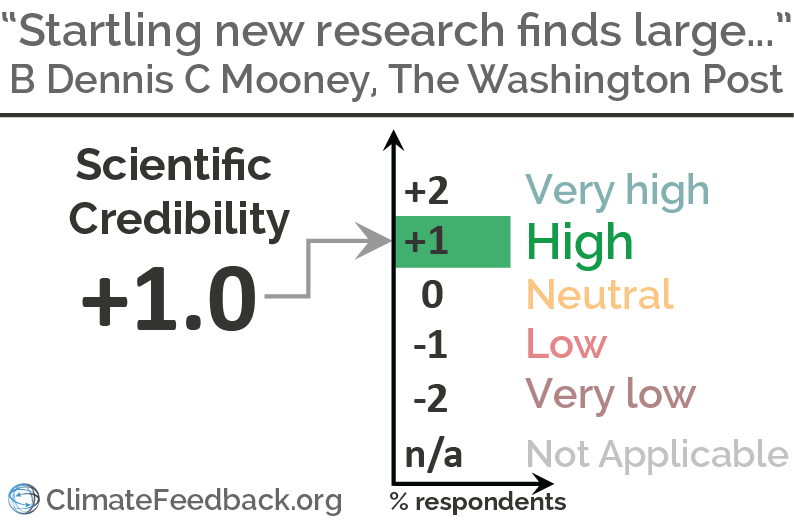
Find more details in the annotations below and in Climate Feedback's analysis
Hurricanes Are Moving Slower—And That's a Huge Problem
Overall scientific credibility: 'very high', according to scientists who analyzed this article.
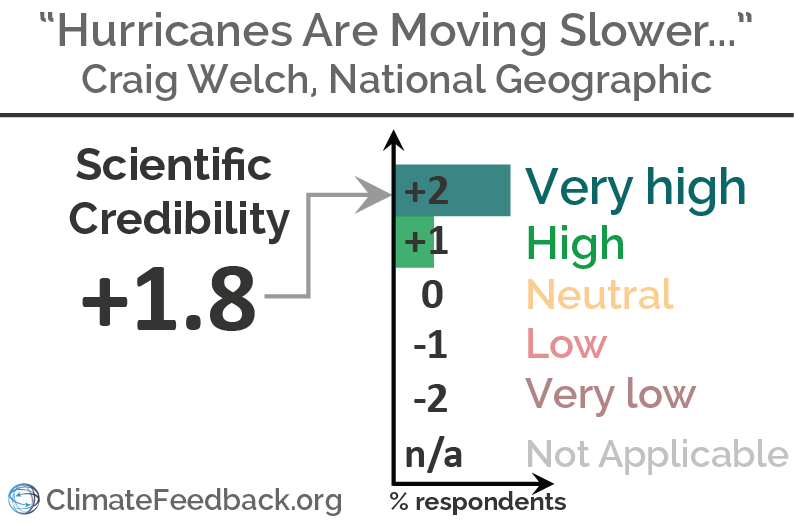
Find more details in the annotations below and in Climate Feedback's analysis
In a Warming West, theRio Grande Is Drying Up
Overall scientific credibility: 'high', according to scientists who analyzed this article.
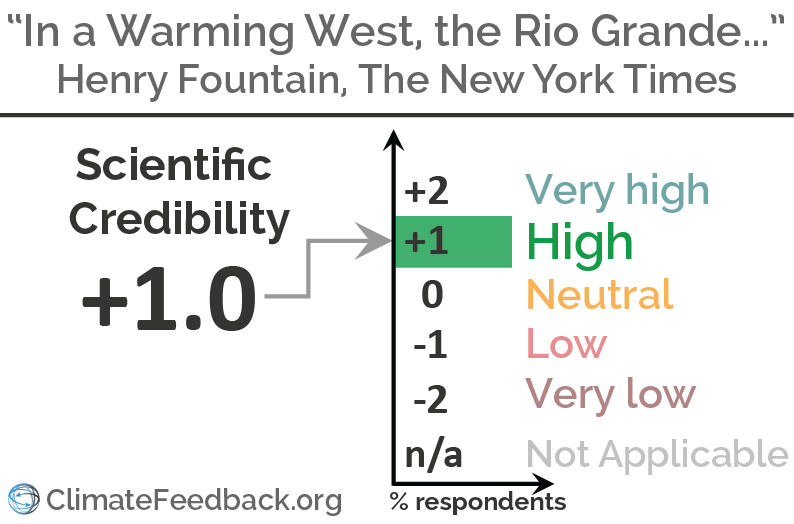
Find more details in the annotations below and in Climate Feedback's analysis
Satellite observations show sea levels rising, and climate change is accelerating it
Overall scientific credibility: 'very high', according to scientists who analyzed this article.
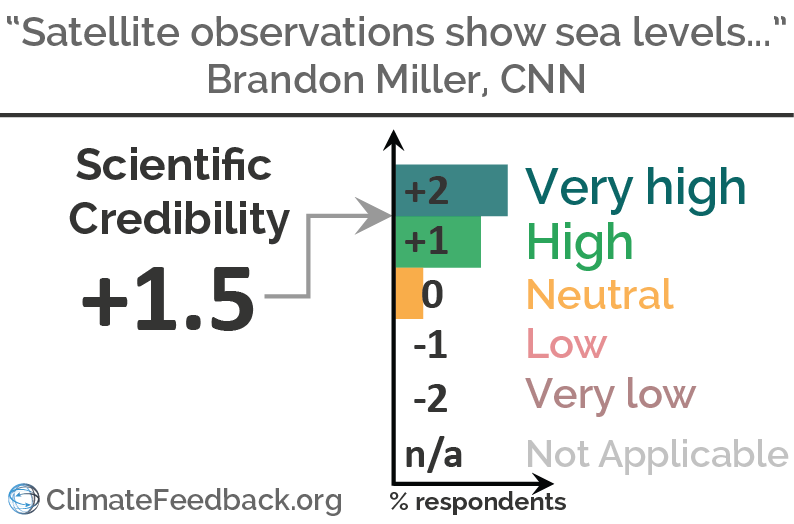
Find more details in the annotations below and in Climate Feedback's analysis
Arctic’s Winter Sea Ice Drops to Its Lowest Recorded Level
Overall scientific credibility: 'high', according to scientists who analyzed this article.
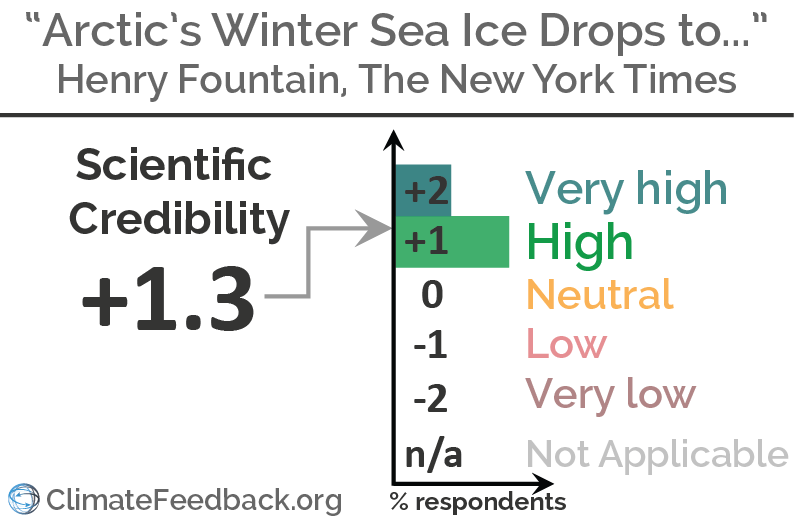
Find more details in the annotations below and in Climate Feedback's analysis
Earth Sets a Temperature Record for the Third Straight Year
Overall scientific credibility: 'very high', according to scientists who analyzed this article.
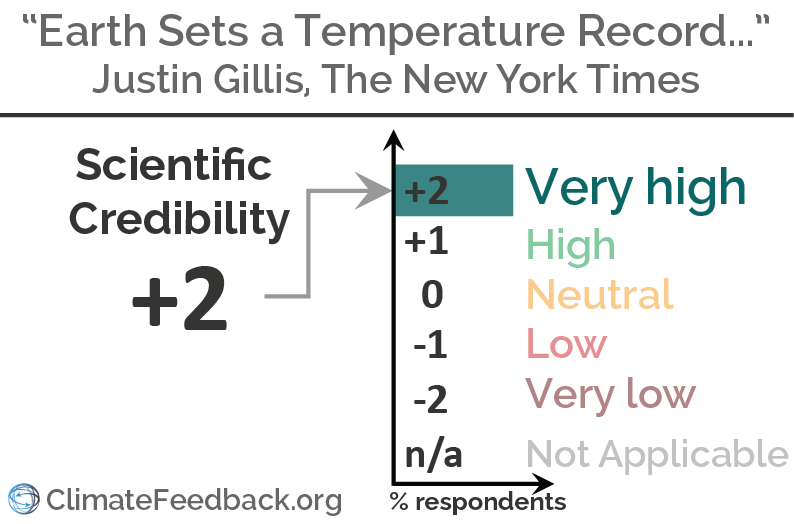
Find more details in the annotations below and in Climate Feedback's analysis
Ice Apocalypse
Overall scientific credibility: 'high', according to scientists who analyzed this article.
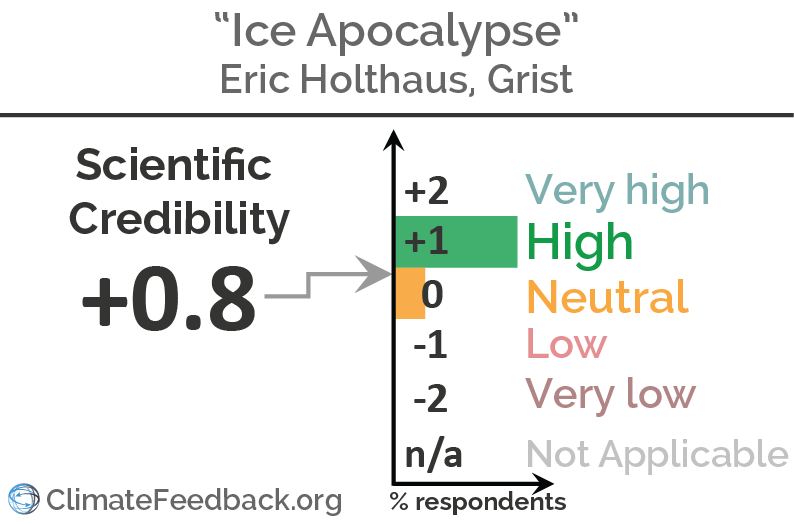
Find more details in the annotations below and in Climate Feedback's analysis
Has Climate Change Intensified 2017’s Western Wildfires?
Overall scientific credibility: 'very high', according to scientists who analyzed this article.
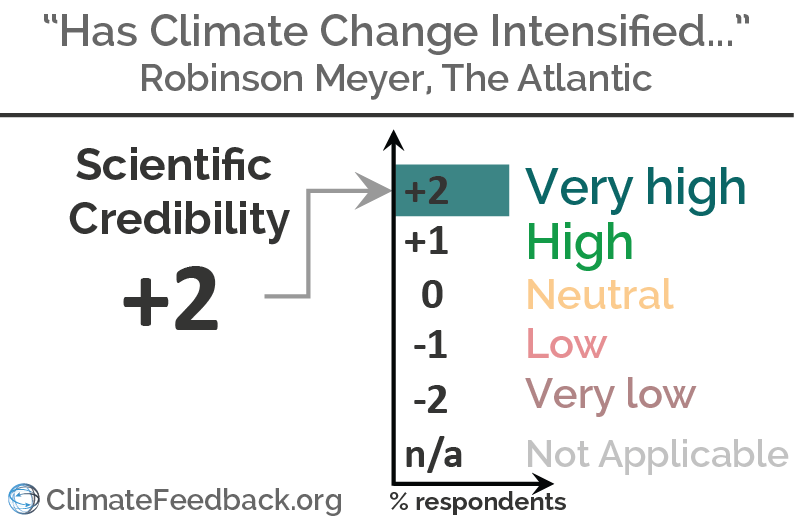
Find more details in the annotations below and in Climate Feedback's analysis
Alaska’s PermafrostIs Thawing
Overall scientific credibility: 'high' to 'very high', according to scientists who analyzed this article.
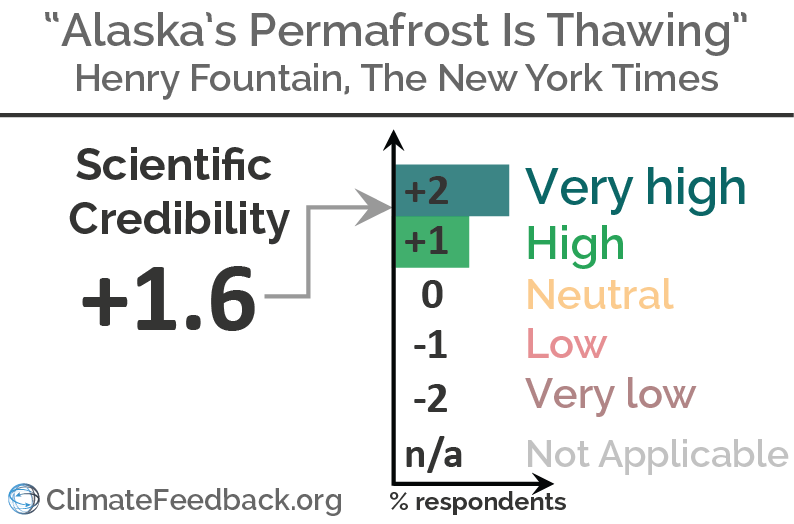
Find more details in the annotations below and in Climate Feedback's analysis
Racing to Find Answers in the Ice
Overall scientific credibility: 'high' to 'very high', according to 9 scientists who analyzed this article.
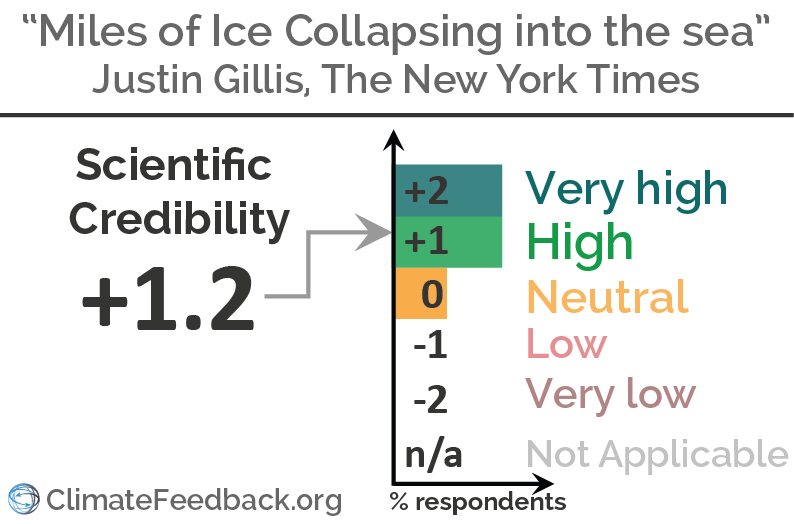
Find more details in the annotations below and in Climate Feedback's analysis
From extreme drought to record rain: Why California's drought-to-deluge cycle is getting worse
Overall scientific credibility: 'high', according to 4 scientists who analyzed this article.
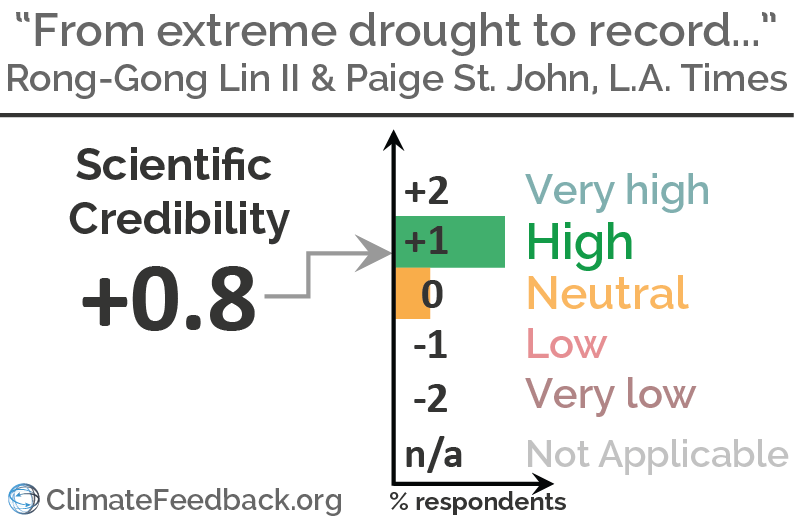
Find more details in the annotations below and in Climate Feedback's analysis
El Niño, explained: Why this year's could be one of the strongest on record
Overall scientific credibility: 'very high' to 'high', according to 5 scientists who analyzed this article.
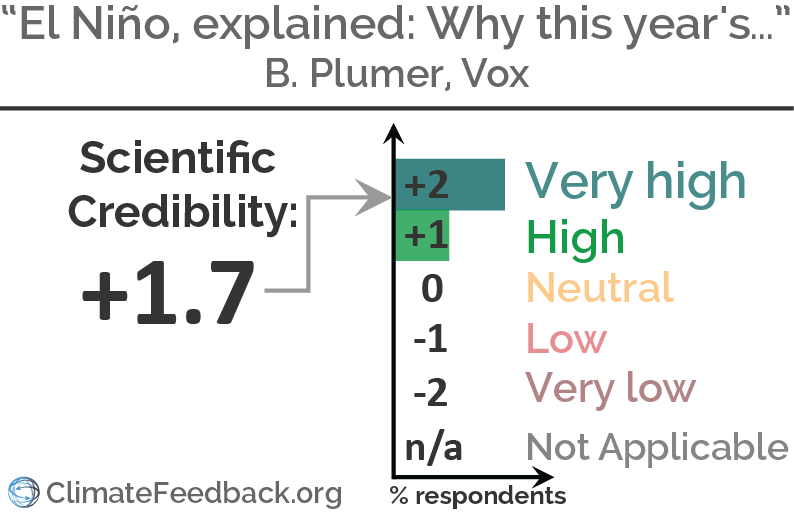
Find more details in the reply+annotations below and in Climate Feedback's analysis
U.S. scientists officially declare 2016 the hottest year on record. That makes three in a row. The inside track on Washington politics. Be the first to know about new stories from PowerPost. Sign up to follow, and we’ll e-mail you free updates as they’re published. You’ll receive free e-mail news updates each time a new story is published. You’re all set! Sign up *Invalid email address Got it Got it
Overall scientific credibility: 'very high', according to 12 scientists who analyzed this article.
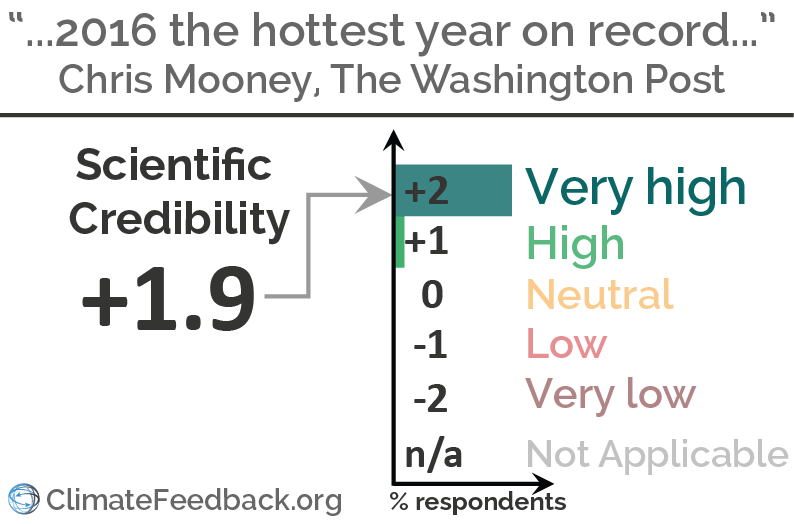
Find more details in the annotations below and in Climate Feedback's analysis
Australia’s Great Barrier Reef has worst coral die-off ever
Overall scientific credibility: 'high' to 'very high', according to 5 scientists who analyzed this article.
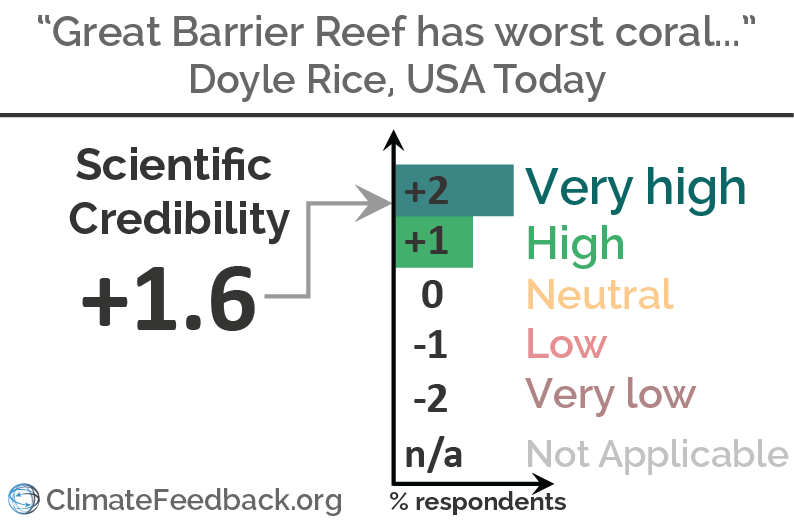
Find more details in the annotations below and in Climate Feedback's analysis
Greenland's huge annual ice loss is even worse than thought
Overall scientific credibility: 'very high', according to 7 scientists who analyzed this article.
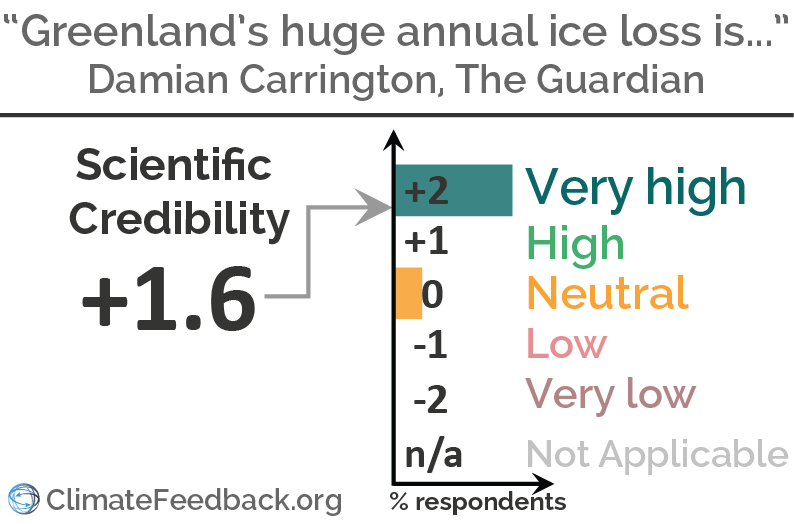
Find more details in the annotations below and in Climate Feedback's analysis
Flooding of Coast,Caused by Global Warming,Has Already Begun
Overall scientific credibility: 'very high', according to 12 scientists who analyzed this article.
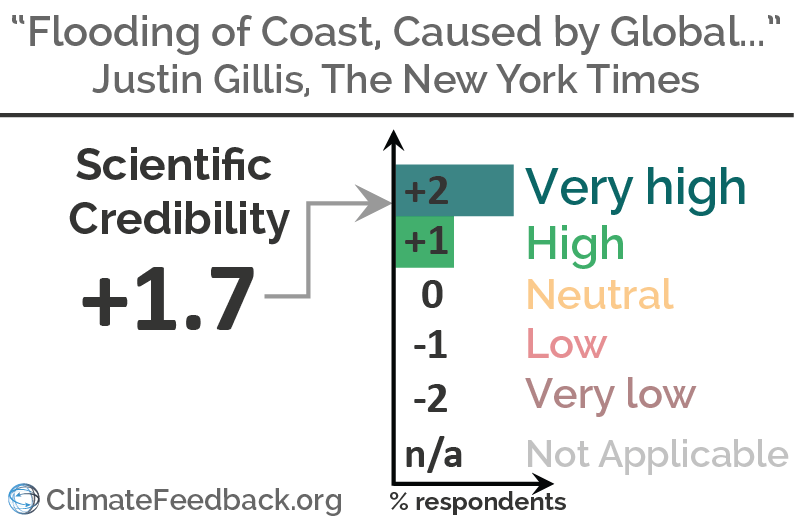
Find more details in the annotations below and in Climate Feedback's analysis
Disasters like Louisiana floods will worsen as planet warms, scientists warn
Overall scientific credibility: 'high', according to the 7 scientists who analyzed this article.
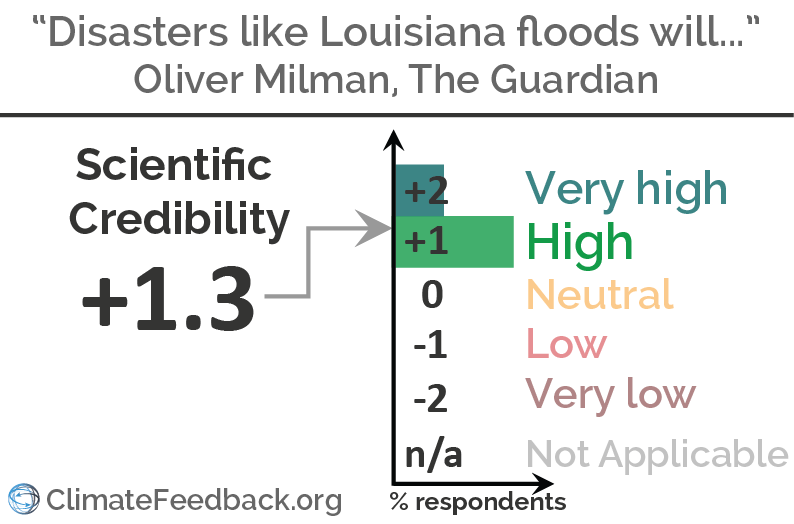
Find more details in the annotations below and in Climate Feedback's analysis
What science can tell us about the links between global warming and massive heat waves The inside track on Washington politics. Be the first to know about new stories from PowerPost. Sign up to follow, and we’ll e-mail you free updates as they’re published. You’ll receive free e-mail news updates each time a new story is published. You’re all set! Sign up *Invalid email address Got it Got it
Overall scientific credibility: 'very high' to 'high', according to the 10 scientists who analyzed this article.
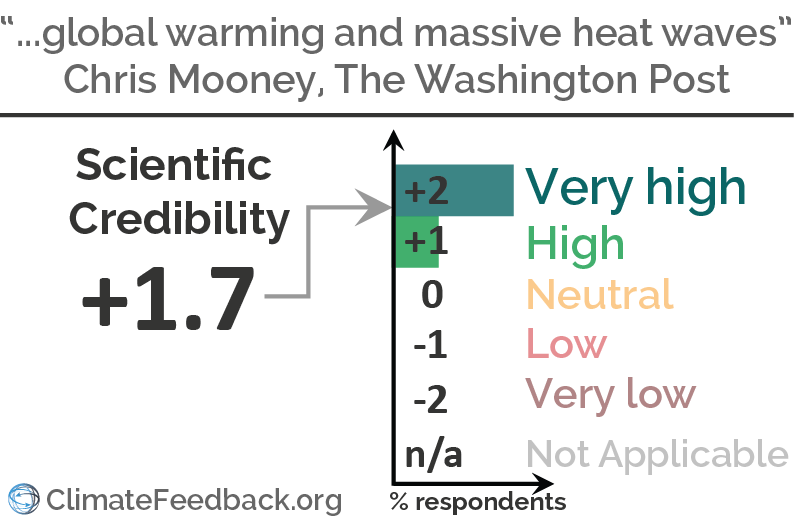
Find more details in the annotations below and in Climate Feedback's analysis
Thanks to climate change, the Arctic is turning green The inside track on Washington politics. Be the first to know about new stories from PowerPost. Sign up to follow, and we’ll e-mail you free updates as they’re published. You’ll receive free e-mail news updates each time a new story is published. You’re all set! Sign up *Invalid email address Got it Got it
Overall scientific credibility: 'neutral' to 'high', according to the 8 scientists who analyzed this article.
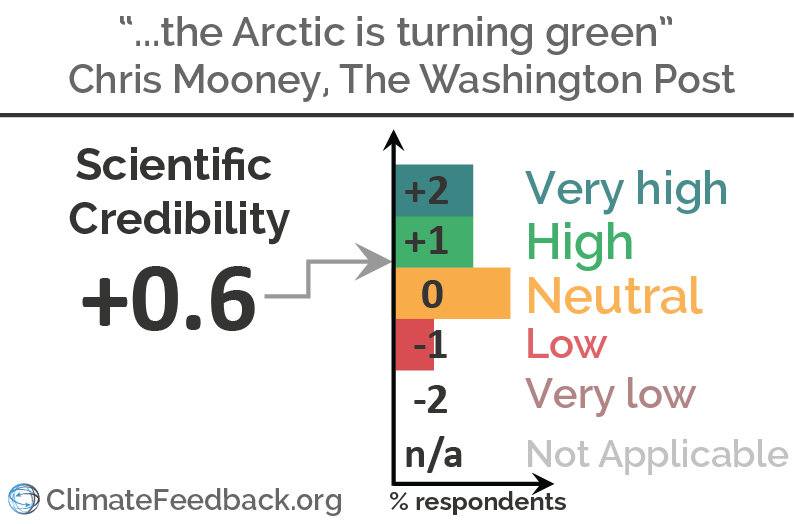
Find more details in the annotations below and in Climate Feedback's analysis
What we’re doing to the Earth has no parallel in 66 million years, scientists say The inside track on Washington politics. Be the first to know about new stories from PowerPost. Sign up to follow, and we’ll e-mail you free updates as they’re published. You’ll receive free e-mail news updates each time a new story is published. You’re all set! Sign up *Invalid email address Got it Got it .hideText{position:absolute;left:-10000px}
Overall scientific credibility: 'very high' to 'high', according to 7 scientists who analyzed this article.
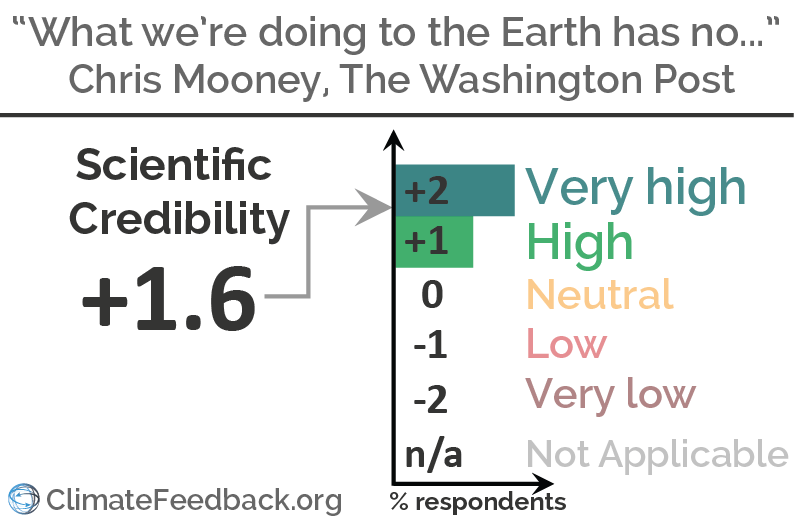
Find more details in the reply+annotations below and in Climate Feedback's analysis
Seas Are Rising at Fastest Rate in Last 28 Centuries
Overall scientific credibility: 'very high' to 'high', according to 7 scientists who analyzed this article.
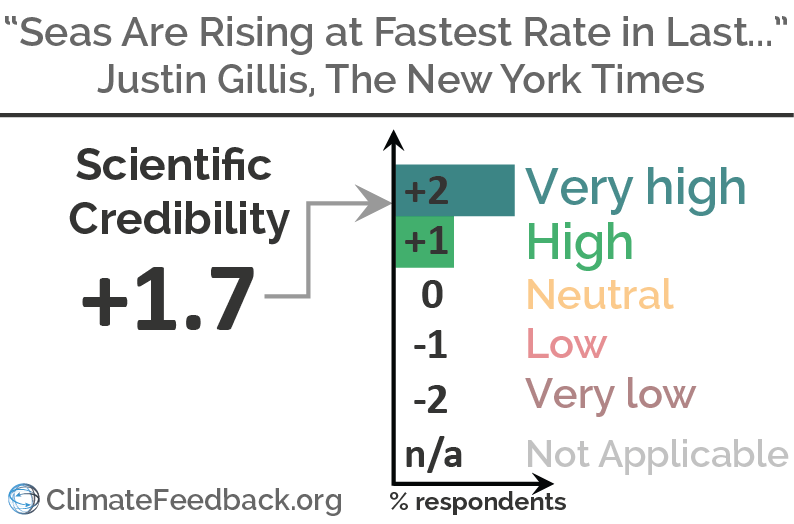
Find more details in the reply+annotations below and in Climate Feedback's analysis
2015 Was Hottest Year in Historical Record, Scientists Say
Overall scientific credibility: 'very high', according to 8 scientists who analyzed this article.
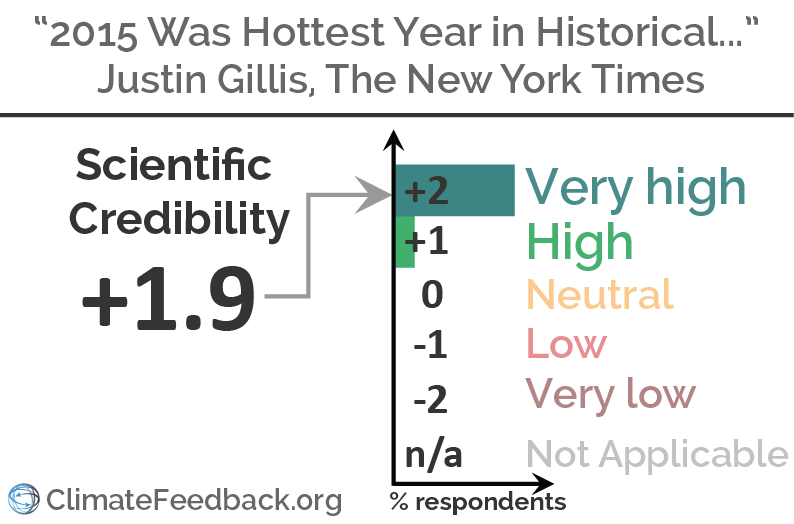
Find more details in the reply+annotations below and in Climate Feedback's analysis
Scientists say human greenhouse gas emissions have canceled the next ice age
Overall scientific credibility: 'very high', according to 8 scientists who analyzed this article.
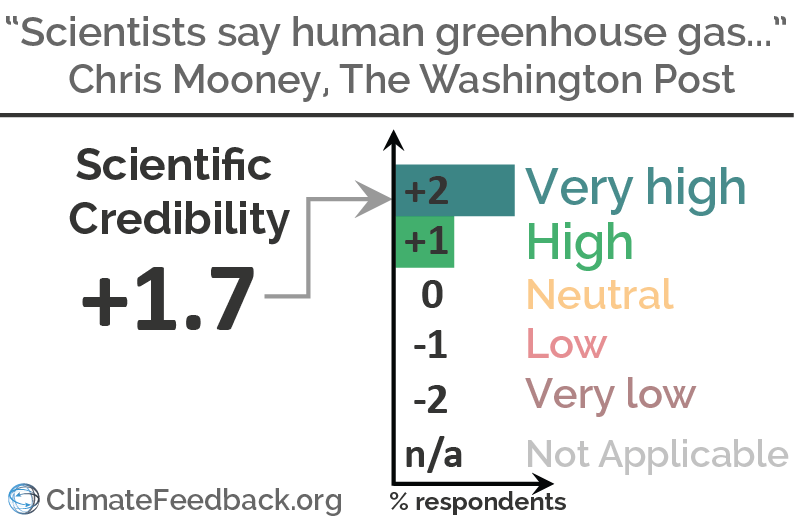
Find more details in the reply+annotations below and in Climate Feedback's analysis
Climate Change Will Cause Increased Flooding In Coastal Cities
Overall scientific credibility: 'high', according to 6 scientists who analyzed this article.
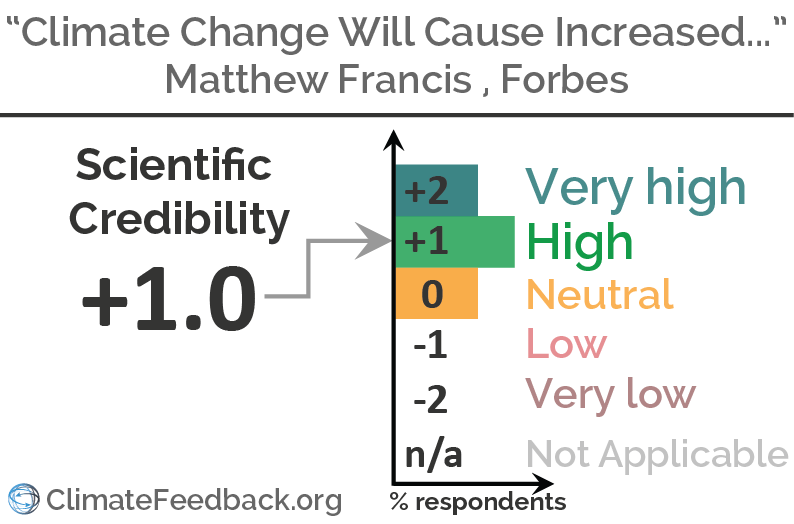
Find more details in the reply+annotations below and in Climate Feedback's analysis
ENCYCLICAL LETTER LAUDATO SI’
Overall scientific credibility: 'high', according to the 9 climate scientists who analyzed this article.

Find more details in the reply+annotations below and in ClimateFeedback's analysis
2014 Breaks Heat Record
Overall scientific credibility: 'high' to 'very high', according to 8 climate scientists who evaluated this article.

Find more details in the annotations below and here
jgdwyer:
This article accurately describes global warming and puts the news that 2014 is the hottest year on record into appropriate context. The article does a very good job of distinguishing between climate variability and climate change with helpful discussion on ENSO and the relatively cold temperatures in the Eastern United States (while staying within the bounds of the mainstream climate science understanding).
karmour:
Very good article overall. I do wish the author had fact checked the incorrect claim by Dr. Christy (that global temperatures have not changed since the end of the 20th century) prior to including his quote in the article.
aklocker:
Scientifically this article seems to be correct but it could be a bit more precise in some of its statements. One thing I like is that it mentions different opinions on some points where scientists do not agree rather than giving a biased story.
bmv:
This article does a good job of putting the 2014 temperature record in context with quotes from experts and good descriptions of relevant issues such as El Nino. References to "skeptics" were appropriately followed up by evidence of their misinterpretation/mischaracterization of the data.
aalpert:
This article provides an accurate and well supported evaluation of the finding that 2014 was the hottest year on record.
emvincent:
Overall, this article is fair in its representation of the 2014 temperature record event and in reminding the context of the long-term warming trend+natural climate variability.
alexis.tantet:
The quality of this article is overall higher than most newspaper articles on climate change as it avoids the usual pitfalls such as confusing year to year variability with long-term change. It also addresses issues prone to confusion, such as why eastern USA did not experience such a warm year as most of the globe, which can help the readers to put the science in perspective with the seasonal climate they have actually experienced. The fact that the article focuses mostly on the observational record and not on theoretical or modeling studies may be a weakness, but the scope of an article cannot be too broad.